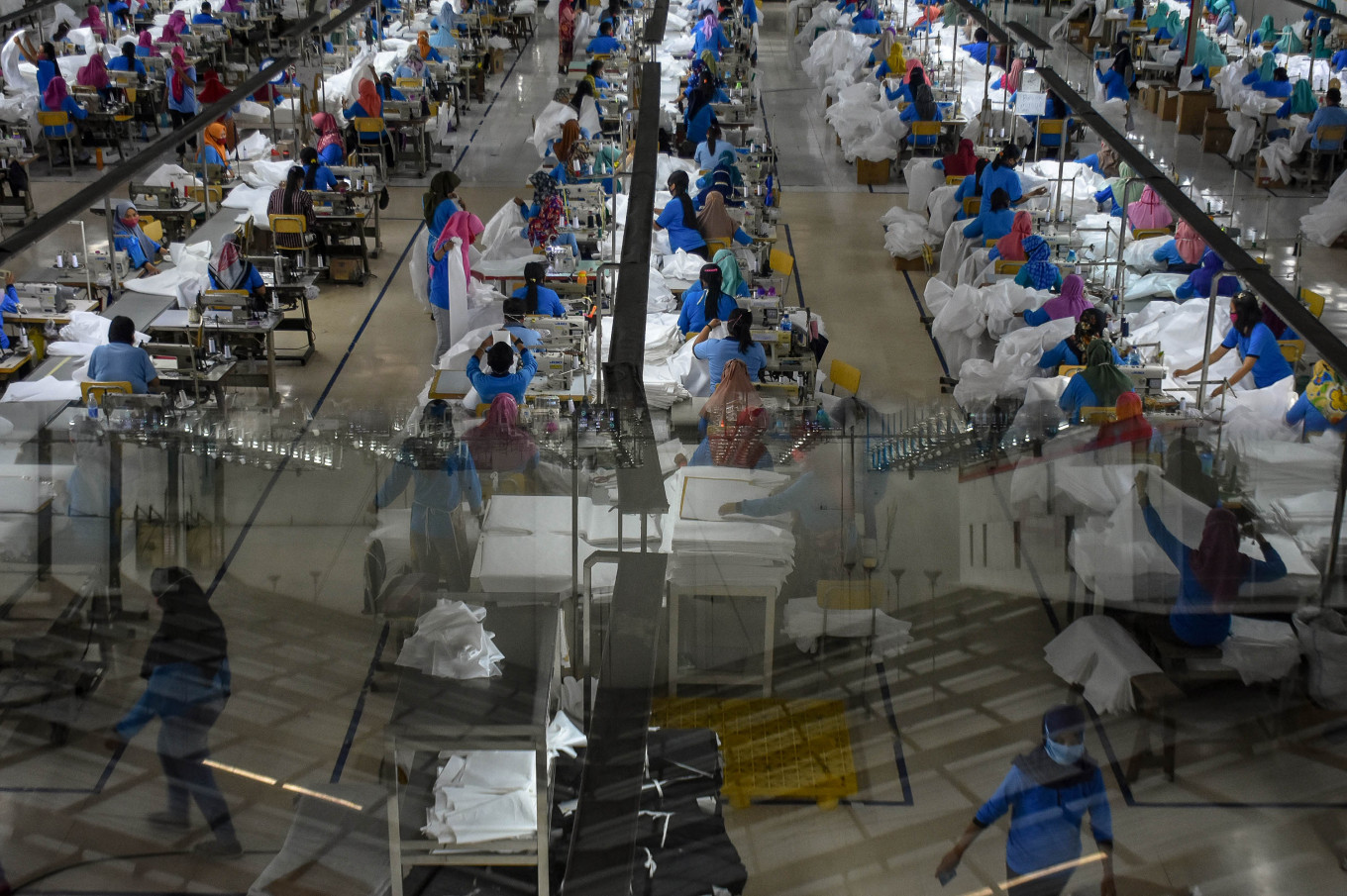Popular Reads
Top Results
Can't find what you're looking for?
View all search resultsPopular Reads
Top Results
Can't find what you're looking for?
View all search resultsAlmost all business sectors will get tax breaks: Govt
The government is looking to finalize next week Rp 35.3 trillion (US$2.26 billion) in new tax incentives for 18 sectors.
Change text size
Gift Premium Articles
to Anyone
T
he government is looking to finalize next week Rp 35.3 trillion (US$2.26 billion) in new tax incentives for 18 sectors including those hardest-hit by the COVID-19 pandemic such as tourism and the food and beverage sector. It will also introduce new tax breaks for the healthcare sector.
The government is currently formulating the regulation and will finalize it by next week in its fourth stimulus package, Finance Minister Sri Mulyani Indrawati said. The incentives will take the form of individual income tax exemptions, import tax deferrals and corporate tax discounts — similar to those offered to the manufacturing sector in previous stimulus packages.
“Almost all of sectors of the economy will receive tax breaks,” Sri Mulyani told reporters, adding that the plan included rolling out tax breaks for micro, small and medium businesses. “Micro, small and medium business taxes will be covered by the government.”
The tax breaks will be provided to the following 18 sectors:
- Food
- Mining and coal
- Manufacturing
- Electricity and gas
- Wastewater management
- Construction
- Trade
- Logistics
- Food and beverage
- Accommodation providers
- Information and communications
- Finance and insurance
- Real estate
- Professional services
- Travel agents
- Education
- Healthcare and social activities
- Tourism and recreation
Source: Coordinating Economic Minister Airangga Hartarto
The Tax Office, meanwhile, has announced new tax incentives to boost the supply of medical devices, including tax exemptions for personal protective equipment and medicine manufacturers. More than 20,000 manufacturers have applied to receive tax incentives.
Tax Office chief Suryo Utomo said the government would waive value-added taxes, individual income taxes and import taxes for goods and services needed to manage the COVID-19 crisis, adding that the exemptions would be provided to government institutions and hospitals, among others.
“This will serve as fiscal support to handle the COVID-19 pandemic,” Suryo told reporters during a teleconferenced press briefing. The regulation took effect immediately and will remain in place for the next six months.
According to Finance Ministerial Regulation No. 28/2020, the government will not collect value-added and import taxes from imports of medicines, vaccines, laboratory devices, testing kits, protective gear, patient treatment kits and other COVID-19 related goods.
The government will also pay the value-added taxes for services needed to handle the pandemic, including construction and consultation, among other services.
As many as 20,018 firms have applied for the tax incentives for manufacturing companies, Suryo said. Around 15,000 applications have been accepted, according to an official document.
Indonesia has set aside Rp 436.1 trillion from the 2020 state budget for medical needs, social safety net programs, relief for small and medium businesses, as well as relief for manufacturing and tourism companies to handle the impacts of the pneumonia-like illness that has infected more than 7,135 people as of Wednesday afternoon, killing 616.
"Ideally, the stimulus should help all sectors affected by the pandemic to improve their resiliency against crisis," said Perbanas Institute economist Piter Abdullah. "However, the current stimulus will not be enough to finance the fight against the pandemic."
The government needs to commit at least $70.5 billion to its healthcare, social safety net and business recovery programs, Piter projected.










